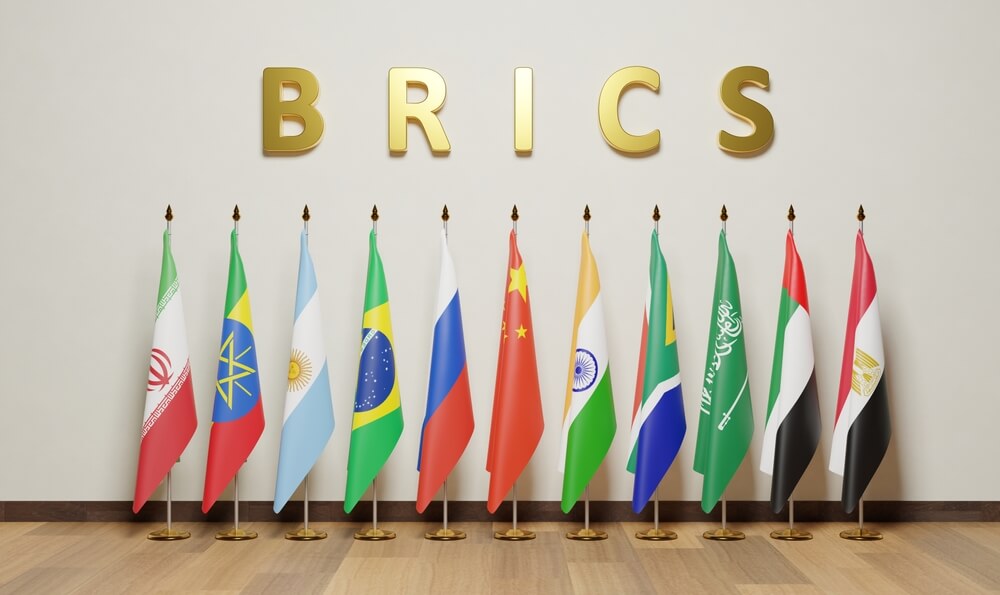The BRICS countries' perception of the alliance's vitality lasted 3 months. This bloc finally turned to expansion after years of negotiations.
The decision of the summit in South Africa held last August was to admit 6 countries that expressed interest: Argentina, Egypt, Ethiopia, Iran, Saudi Arabia, and the UAE.
However, the list was reduced before January 1, 2024, when the formal admission of new members was agreed. Argentina announced that it was giving up its membership and thus opened the question of whether the ambitious expansion of BRICS is feasible.
Incoming Argentine Foreign Minister Diana Mondino has confirmed expectations from the recent presidential campaign that the victory of her boss, Javier Miley, would mean reversing the previous administration's decision to join BRICS.
"No ingresaremos a los BRICS”, (We will not join BRICS) Mondino wrote on X, ahead of December 10 when Miley is due to take over as president and set up his administration.
Politically unacceptable block
Giving up membership in the alliance of China, Russia, India, Brazil, and South Africa was one of the firm promises of Miley's election campaign and a significant foreign policy position accepted by Argentine majority voters on November 19.
"BRICS is more related to a political alignment than to advantages that could exist for trade between countries”, said Ms Mondino, a foreign policy adviser to the conservative presidential candidate at the time, during the campaign.
Miley offered the Argentinians a shift in the country's previous political alignment. Diana Mondino assured that Argentina has diplomatic and political ties with most of the BRICS members and that the existing agreements are sufficient regarding cooperation.
The victory of Javier Miley was, therefore, received as bad news within the BRICS. His simplistic division of the world into democracies and (communist) autocracies, where Argentina will cooperate only with the former, has clearly disqualified BRICS founders Russia and China as possible allies in the event of his victory.
Miley's controversial economic concept is the complete opposite of the essence of the BRICS association. His proposal to fully dollarize the Argentine economy is the opposite of the fundamental idea of the BRICS alliance - to phase out the US dollar from international trade in favour of either a common BRICS currency or increased usage of the member nations' national currencies.
Argentina's shift is a heavy blow to the efforts of BRICS to position itself as a block that would offer the world a new value system
Argentina's shift is a heavy blow to the efforts of BRICS to position itself, not only as a community of trade interests searching for a different model in the international economy but also as a block that would offer the world a new value system.
During the August summit in South Africa, the BRICS ideals were a principal topic of discussion. However, Argentina's change altered this arrangement.
With Argentina leaving the bloc even before it formally became a member, BRICS appeared as a platform without shared values, and its ability to expand depended solely on the political conjuncture of potential new members.
Former President Alberto Fernández was a big supporter of Argentina joining BRICS and saw it as a way for the country to reach new markets.
His economy minister and Javier Miley's opponent in the last election, Sergio Massa, took out large Chinese loans over the summer to rebuild infrastructure and lines to service part of his yuan debt.
A blow to China
This orientation of the current administration of Argentina towards China is apparently ending. This will bring economic headaches to Beijing, given that Argentina is the biggest trading partner on the continent along with Brazil, but also political problems.
Leaving BRICS, after the recent triumphant decision to expand the bloc, is a blow to China given its de facto dominance of this alliance and its strategy of using BRICS as the principal platform to promote its influence and model globally.
 This orientation of the current administration of Argentina towards China is apparently ending.
This orientation of the current administration of Argentina towards China is apparently ending.
Argentina's withdrawal is a sign of the volatility of this alliance, which has until now been burdened by conflicts between the members—primarily between China and India—and Russia's total isolation on the political and economic fronts as one of its founding members.
This decision will undoubtedly affect the remaining 5 newly admitted members. They will not inevitably go the same way as Argentina, al though it is also conceivable. However, they will definitively make a new calculation and measure whether it is really beneficial for them to be in a club that has been falling apart after its first attempt to expand.